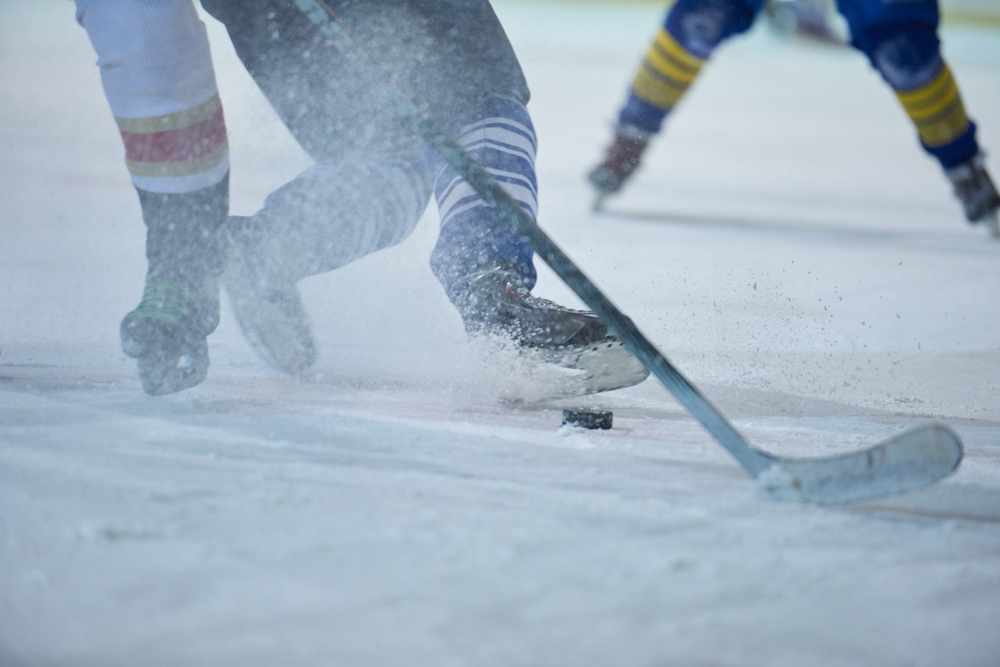-
Ice hockey experts prioritize ways to reduce concussion risk

ROCHESTER, Minn. — Hockey researchers at Mayo Clinic and their colleagues are unveiling new recommendations that seek to ensure the well-being of hockey players, and lower the risk, severity and consequences of concussion in the sport.
Recommendations include:
- Establishing a national and international database for sport-related concussion at all levels
- Eliminating body checking in Bantam youth hockey games
- Expanding the Fair Play behavioral modification program to all youth hockey levels
- Enforcing ejection penalties for fighting in Junior A and professional hockey leagues
- Establishing objective tests to diagnose concussion at the point of care
- Mandating baseline testing to improve concussion diagnosis
In a rare arrangement, the recommendations are being published in Current Sports Medicine Reports, Advances in Orthopaedics and Sports Medicine, Annals of Sports Medicine and Research, and the Clinical Journal of Sports Medicine.
“It is critical to disseminate the information widely and repeatedly,” says Aynsley Smith Ph.D., who leads the Mayo Clinic Sports Medicine Ice Hockey Research team. “Concussion is a brain injury that can be hard to diagnose objectively. That's why coming up with strategies to prevent concussion in the first place is paramount.”
A concussion usually is caused by a blow to the head, face or neck. A blow to the body that transmits a force to the head also can cause concussion. As the brain moves inside the skull, the brain tissue is stretched.
A concussion may not result in loss of consciousness. Less than 1 in 10 people with concussion lose consciousness. But after a concussion, a person is three to four times more likely to sustain another concussion during the same sports season.
The recommendations came out of the "2017 Ice Hockey Summit III: Action on Concussion" hosted by Mayo Clinic Sports Medicine. Approximately 155 physicians, athletic trainers, physical therapists, nurses, neuropsychologists, scientists, engineers, coaches and officials attended the summit — the third hosted by Mayo — and voted on the priorities.
“We update our recommendations with each Ice Hockey Summit to reflect current research and understanding of concussion,” says Michael J. Stuart, M.D., orthopedic surgeon and co-director of Mayo Clinic Sports Medicine. “But it takes a concerted, collaborative effort to identify and implement prioritized action items to make this sport safer for all athletes.”
In a separate commentary in Current Sports Medicine Reports, Drs. Smith and Stuart call for the end to fighting and head hits in hockey — an essential prevention strategy to improve the safety of the game at all levels.
The sponsors of the hockey concussion summit are USA Hockey, International Ice Hockey Federation, Thorne Science, Hockey Equipment Certification Committee, American College of Sports Medicine, Johannson-Gund Endowment, Brian Mark Foundation and the Martineau Gift.
Drs. Smith and Stuart receive research support from the USA Hockey Foundation.
###
About Mayo Clinic
Mayo Clinic is a nonprofit organization committed to clinical practice, education and research, providing expert, comprehensive care to everyone who needs healing. Learn more about Mayo Clinic. Visit the Mayo Clinic News Network.
Media contact:
- Rhoda Madson, Mayo Clinic Public Affairs, 507-284-5005, newsbureau@mayo.edu







